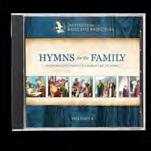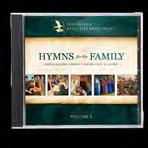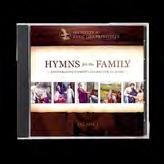Persuasiveness
Guiding vital truths around another’s mental roadblocks
“And the servant of the Lord must not strive; but be gentle unto all men, apt to teach, patient.”

II TIMOTHY 2:24
PHILIP GUIDES A TRAVELER TO JESUS


“Then Philip opened his mouth, and began at the same scripture, and preached unto him Jesus.”
ACTS 8:35
SPIRITUAL GIFT:
BIBLICAL CHARACTER ILLUSTRATED CURRICULUM Illustrated in Scripture, Illustrated in Life
Prophet
CONTENTS
2 Introduction
2 How to Use This Curriculum
3 Goals and Objectives
4 Character Quality Overview
5 Persuasiveness in Scripture
6 Lesson 1: Point Others in the Right Direction
7 Bible Story: Philip Guides a Traveler to Jesus
8 Memory Verse: Hebrews 3:13
9 Activity: Riding ’Round the Roadblocks
10 Lesson 2: Not Bend the Truth
11 Bible Story: The Scouting Report of the Spies
12 Memory Verse: Proverbs 12:22
13 Activity: Word Search
14 Lesson 3: Appeal to a Person’s Conscience
15 Bible Story: A Powerful Appeal and the Convicted Crowd
16 Memory Verse: Acts 2:37
17 Activity: Just the Right Questions
18 Lesson 4: Not Argue
19 Bible Story: Paul Presents Truth to a King
20 Memory Verse: II Timothy 2:24
21 Activity: It’s All in the Presentation
22 Additional Resources
22 Persuasiveness GEMs






23 Journal and GEM Mine
24 Hymn Sheet Music: “Let Jesus Come into Your Heart”
25 Hymn History: “Let Jesus Come into Your Heart”
by Leila N. Morris
26 Explaining Salvation to a Child
27 Reproducible Coloring Pages
31 Recommended Resources


Biblical Character Illustrated Curriculum
Illustrated in Scripture
“The testimony of the Lord is sure, making wise the simple” (Psalm 19:7b). Biblical character is illustrated in this curriculum through both artwork and lessons from the lives of people in God’s Word. We most often benefit from the positive examples of faithful men and women. “For whatsoever things were written aforetime were written for our learning, that we through patience and comfort of the scriptures might have hope” (Romans 15:4). There were also people in the Bible who are representations of poor character, and we can learn from their lives as well. “Now these things were our examples, to the intent we should not lust after evil things, as they also lusted” (I Corinthians 10:6). We would be wise to learn from the testimonies God has given us in Scripture.
Illustrated in Life
“Faith cometh by hearing, and hearing by the word of God” (Romans 10:17). Hearing the Word of God causes us to grow in faith. This curriculum offers many practical applications of God’s Word to everyday life. “But be ye doers of the word, and not hearers only” (James 1:22). As God enables us to act in faith, our lives as believers will illustrate His character to others.
The character of God
is illustrated in Scripture. May it also be illustrated in our lives.
Character Quality Overview


What Is Persuasiveness?

Read aloud and discuss what persuasiveness means and how it applies to life.
The operational definition of persuasiveness is “guiding vital truths around another’s mental roadblocks.” Vital truths are those facts of life that we all need to know for our good. Sometimes, however, people can have false, deep-rooted ideas that keep them from accepting or acting on those important truths. Such ideas are called “mental roadblocks.” Ignorance, fear, misunderstandings, and false beliefs can keep a person from seeing clearly what is true and right. To guide others around these obstacles, you must first understand the truth for yourself, identify the specific barrier, and discern how best to talk with them. Sometimes rewording the truth in a simpler way is helpful. Other times more explanation, wise questions, or examples are needed. You can also point out either the good results of right actions or the consequences of wrong actions. Agree where you can, maybe saying, “That seems to make sense, doesn’t it?” before speaking the truth. Be sensitive to the Holy Spirit as you lovingly guide others toward Godly conclusions.
The opposite of persuasiveness is contentiousness. A contentious person is quick to argue in his attempt to persuade. He insists on debate, sometimes even elevating his opinions over the very truth he is trying to prove! Contention turns people away instead of

drawing them to the truth. Proverbs 13:10 states that contention only comes by pride. In contrast, Galatians 5:22 says that walking in the Spirit brings the pleasant fruit of love, joy, peace, longsuffering, and gentleness. Instead of trying to force the truth on people, “salt the oats” by making others curious about what you have to say. “Let your speech be always with grace, seasoned with salt, that ye may know how ye ought to answer every man” (Colossians 4:6). As you learn to reason graciously with people, they will more readily accept the truth you share with them.
Every day is filled with opportunities to be persuasive. Being an example by making your bed and putting away your pajamas can influence your brothers and sisters to do the same. You can motivate a struggling student by helping him understand his school work. If your friend grumbles that he doesn’t like his parents’ rules, ask him questions to help him picture what could happen without those guidelines. When a foolish conversation begins, gently change the topic to one that is more edifying, such as God’s recent answer to prayer. If you see people wasting their time, invite them to join you in a project that is constructive and helpful. Make the most of the opportunities you have each day to persuade others to live by God’s Word.
4
By using God’s Word to give light, a persuasive person helps others to see and avoid obstacles along life’s way.
A contentious person seeks to force his opinion on others or “runs over” people in order to prove his point.
Persuasiveness in Scripture
As you read and study God’s Word, you will see Who He is! Be willing to be changed by Him so Christ can be seen through your life and others will glorify God.
The Character of God
We see examples of persuasiveness in God’s character in the following ways:
• God, using a simple question, spoke to Cain’s conscience, shining a light on his wrong actions.
(See Genesis 4:9–10.)
• God uses His creation to present undeniable evidence of His truth and power.
(See Romans 1:19–20.)
• Jesus persuaded the disciples that He was the Son of God by revealing His authority over nature.
(See Matthew 14:32–33.)
• Jesus often used parables and stories as illustrations so those with hearing hearts could better grasp spiritual truths.
(See Mark 4:30–34.)
• Jesus made application from the Law to show His adversaries that healing on the Sabbath was the right thing to do.
(See Luke 13:14–16.)
• Jesus’ words brought conviction that motivated the crowd to change their plans.
(See John 8:7–9.)
• The Holy Spirit guides believers into all truth, and He gives wisdom for persuading others regarding the truth.
(See John 16:13, I Corinthians 2:3–5.)

PERSUASIVENESS KEY VERSE
“And the servant of the Lord must not strive; but be gentle unto all men, apt to teach, patient.” II TIMOTHY 2:24
Persuasiveness in My Life
Now let’s examine some ways God wants us to live out persuasiveness daily.
• Do I prepare my heart to seek and obey God’s Word so that I am better able to persuade others of the truth?
(See Ezra 7:10, Titus 1:9.)
• Why is it important for me to learn how to clearly share the Gospel?

(See Ezekiel 3:18.)
• Am I committed to handling the Word of God plainly and honestly as God leads, so that Scripture is able to speak to another’s conscience?
(See I Corinthians 14:24, II Corinthians 4:2.)
• What should be evident in my words, attitudes, and actions, as I boldly speak the truth?
(See Ephesians 4:14–15.)
• Have I stopped and considered the needs or goals of my audience above my own needs?
(See Philippians 2:4.)
• What can I do to make sure my beliefs are based on God’s Word and that I am ready to explain them to others?
(See II Timothy 2:15.)
• How can my example influence others to act?
(See Hebrews 10:24.)
5
Point Others in the Right Direction

Have you ever been lost?
In order to find your way back to familiar places, you need someone to give you directions. In a similar way, many have wandered away from the right path spiritually, and some have never been on it to begin with. Jesus said: “I am the way, the truth, and the life: no man cometh unto the Father, but by me” (John 14:6). By pointing others to Jesus, you help them to find the truth and the way of life. Through sharing God’s Word, you give them answers for difficult situations and decisions. You can also guide others in the right direction by staying on the right path yourself. When they see you not only talking about memorizing Scripture but also doing it with joy and success, they will be encouraged to follow your example.

Guiding vital truths around another’s mental roadblocks


6
PERSUASIVENESS
INTRODUCTION GOD ENABLES ME TO
Philip Guides a Traveler to Jesus
BIBLE STORY
Philip Guides a Traveler to Jesus
Stephenand Philip were two of the seven deacons appointed by the church in Jerusalem. These men fulfilled the responsibility of serving tables and ministering to widows. The deacons were men of hospitality, patience, and self-control. God empowered Stephen to preach and perform miracles. When certain men of the synagogue heard his words, they were convicted. Yet, unwilling to repent of their sin, they stirred up the people, brought Stephen before the council, and accused him of blasphemy. Refusing to hear or consider Stephen’s powerful testimony, they cast him out of the city and stoned him. After Stephen became the first Christian martyr, the Church encountered
great persecution. The believers were scattered beyond Jerusalem and went everywhere, preaching the Gospel. Philip traveled to the city of Samaria. As the Samaritans heard Philip speak and saw the miracles he performed, they believed on Christ. The city was filled with joy! After Peter and John visited the new believers, Philip moved on to preach in other Samaritan villages. Suddenly, he was directed to travel to a remote, desert location. Why was Philip sent there? Whom would he meet? Would Philip be sensitive to the traveler’s spiritual needs and point him in the right direction?
Let’s read the Bible story in Acts 8:26–40 and then discuss the following questions.
1. Who spoke to Philip? What instructions was Philip given? While following those instructions, whom did Philip meet? What was the traveler doing? (See Acts 8:26–28.)
In what ways can God get your attention? When God prompts you to go out of your way to speak to someone about Christ, how do you respond?
2. What did the Holy Spirit prompt Philip to do next? How did Philip start a conversation with the traveler? (See Acts 8:29–30.)

What questions can you ask to help a friend or sibling think through their choices?
3. What specific Scripture was the eunuch reading while on his journey? What did he want to know about it? (See Acts 8:30, 32–34.)
How can you prepare for when someone may ask you a question about Jesus or the Bible?
4. What resource did Philip use to answer the traveler’s questions? Of Whom did Philip speak?
(See Acts 8:35.)
What Scripture can you use to point others in the right direction when they want to know how to be saved? When they are struggling with obeying their parents? When they are having trouble getting along with another person?
5. What did the eunuch want to do next?
(See Acts 8:36.)
If someone asks you about the meaning of baptism, what verses can you share with him? (See Romans 6:3–4, Colossians 2:12–13.) What must a person do before being baptized? (See Acts 2:38.)
6. What was Philip’s wise answer? What did the eunuch do in response? (See Acts 8:37.)

When leading someone to the Lord, why should you take time to make sure that the person fully understands the decision he is making?
7. What happened after Philip baptized the eunuch? What was an evidence of the eunuch’s conversion as he continued on his journey? (See Acts 8:39.)
Who has pointed you toward the Lord?
7
LESSON 1 Point Others in the Right Direction
Revealing the character of Christ through the stories in His Word.
SAVE 20% on any individual Biblical Character Illustrated booklets

Use coupon: BCICBOOKLET


Biblical Character Illustrated Curriculum
Discover this unique tool that uses the stories in Scripture to illuminate character qualities God wants to develop in the lives of His people. This curriculum contains multiple ways to teach character to kids and give them a vision for building character through faith in Christ!

Single Booklets: $10 each
Complete Set: $379 (SAVE 23%)
OTHER BIBLICAL CHARACTER RESOURCES

Single PDF Download: $3 each
PDF Download Set: $109 (SAVE 25%)

Biblical Character Illustrated 49-Booklet Set
Includes 2 bonus items: Calendar + Understanding Spiritual Gifts

Power for True Success
Insightful, Biblical studies on all 49 character qualities
Hymns for the Family, Volumes 1–4




Companion hymns for each character quality
Character Sketches, 4-Volume Set
Timeless resources to show God’s character relfected in creation

Shop these resources at store.iblp.org. • Questions? Call 903-636-9600 or email biblicalcharacter@iblp.org.



























